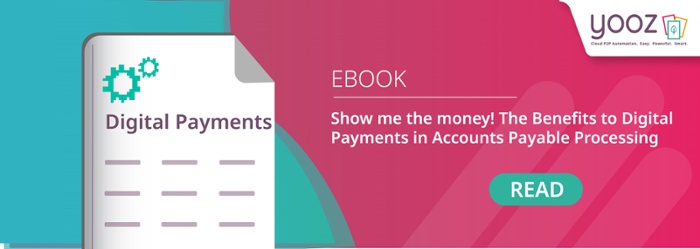Managing a healthcare facility or business comes with numerous challenges, making precise healthcare accounting essential for success. Beyond regulatory compliance with standards like Generally Accepted Accounting Principles (GAAP), effective healthcare accounting optimizes financial processes, improves efficiency, and supports data-driven decision-making. This makes healthcare accounting important as it balances financial efficiency with quality patient care, ensuring sustainable operations and improving patient outcomes.

In the following sections, we’ll explore the critical role of healthcare accounting and how advancements in technology are transforming financial management in the healthcare sector.
Continue reading to gain deeper insights.
The Foundation of Healthcare Accounting
What is Healthcare Accounting?
Healthcare accounting is a specialized field dedicated to managing the financial operations healthcare organizations. It involves financial reporting, budgeting, and cost analysis, all while navigating industry-specific regulations, reimbursement systems, and compliance standards.
Far from being just about numbers, healthcare accounting plays a vital role in ensuring proper cash flow management, maintaining financial integrity and driving strategic decision-making. By identifying cost-saving opportunities and optimizing revenue streams, healthcare accountants help operational efficiency without compromising the quality of patient care.
In an industry where financial stability directly impacts both operational capabilities and patient outcomes, effective healthcare accounting practices are critical for ensuring stability and long-term growth.
Key Challenges in Today's Healthcare Accounting
Healthcare accounting faces several key challenges that complicate effective financial management. With increasing costs for labor, medical supplies, and technology upgrades, efficient accounting practices are key to maintaining profitability.
These include:
Medical Billing and Coding Errors
This is a persistent issue that can easily lead to processing errors, payment delays, and revenue losses.
Rising Labor and Supply Costs
Increasing costs for labor, medical supplies, and technology upgrades are all strains on already tight budgets. This makes efficient accounting practices are key to maintaining profitability.
Outdated Technologies
Old technology hampers efficiency, reducing collaboration and often unable to integrate with modern financial systems.
Regulatory Compliance
Healthcare regulations are constantly changing. Failure to protect patient healthcare data can result in costly penalties and audits. Examples of some healthcare regulatory requirements include the Health Insurance Portability and Accountability Act (HIPPA) regarding privacy, The Anti-Kickback Statue and Stark Law regarding improper financial incentives, and the Affordable Care Act (ACA) regarding health and insurance coverage.
The Critical Role of Healthcare Accounting
However, healthcare accounting is about more than just tracking numbers. It involves the detailed processing and recording of financial transactions serving as the backbone of financial management, fostering transparency and accountability. It provides executives, investors, and stakeholders with a clear view of the organization’s financial position, guiding strategic decisions that influence long-term sustainability.
By maintaining accurate financial records and ensuring compliance with complex healthcare regulations, accountants help organizations mitigate financial risks and adapt to evolving industry standards. Their expertise ensures that financial resources are allocated efficiently, balancing operational needs with fiscal responsibility.
The Expanding Role of Healthcare Accountants
Healthcare accountants serve as financial stewards, combining financial expertise with an in-depth understanding of the healthcare industry. Their responsibilities extend beyond bookkeeping and financial reporting into actively collaborating with leadership teams, offering insights that influence strategic decisions. 
Key responsibilities include:
-
Budget planning and cost analysis: Ensuring financial sustainability and resource efficiency.
-
Investment evaluation: Guiding smart financial decisions that align with business goals.
-
Regulatory compliance: Navigating healthcare-specific financial regulations and
By aligning financial strategies with organizational objectives, healthcare accountants help organizations remain resilient and successful in an ever-changing landscape.
Technology’s Impact on Healthcare Accounting
Without question advancements in technology have reshaped healthcare accounting, transforming financial management by streamlining operations and improving accuracy. Healthcare management plays a crucial role in ensuring financial accountability and the effective allocation of funds to upgrade patient services and comply with regulations.
In fact, cloud-based platforms, automation, and Artificial Intelligence (AI) have orchestrated a complete paradigm shift in health care accounting, fundamentally altering how financial data is collected, processed, and analyzed.
The Power of Automation
Automation has become a game-changer, reducing the manual workload of accountants. By automating routine financial tasks such as invoice processing, payroll, and expense tracking, healthcare organizations improve accuracy, reduce errors, and enhance overall efficiency.
This shift allows accountants to focus on strategic areas, such as interpreting financial data and making recommendations for strategic organizational growth.
Improving Collaboration Through Cloud-Based Accounting
Cloud-based accounting solutions offer real-time access to financial information, improving collaboration across departments and facilities even in geographically isolated healthcare organizations. These platforms ensure all stakeholders have access to up-to-date information, streamlining decision-making and fostering financial agility.
AI and Machine Learning as the Future of Healthcare Accounting
AI and Machine Learning (ML) are further reshaping healthcare finance and accounting, with the industry projected to surpass $3.8 billion in AI-driven financial applications by 2025.
Why does this matter?
-
AI identifies patterns in financial data, identifying anomalies, and predicts potential risks. This allows organizations to proactively make data-backed decisions to strengthen their financial health.
-
The integration of AI-driven tools enhances financial forecasting, ensuring that organizations make data-backed decisions to strengthen their financial health. This in turn ensures that everything runs smoothly and that patients are cared for properly.
Financial Reporting and Informed Decision-Making
Accurate financial reports are vital for healthcare accounting, providing insights into revenue sources, expense trends, and overall profitability. These reports are crucial for financial management, empowering leadership to make informed decisions that optimize financial and patient outcomes.
However, the reports aren't limited to conventional balance sheets and income statements. Beyond these, healthcare accounting includes industry-specific reports such as:
-
Cost of care per patient – Aiding in resource allocation and operational efficiency.
-
Cash flow statements – Offering visibility into cash inflows and outflows for improved liquidity management.
By analyzing these reports, healthcare organizations can enhance financial stability and allocate resources more effectively.

Cash Flow Analysis and Forecasting
Effective healthcare accounting requires detailed cash flow analysis to anticipate financial fluctuations and maintain liquidity. Through predictive modeling, healthcare accountants forecast financial trends, helping organizations prepare for economic challenges and make strategic investments in growth initiatives.
Navigating GAAP In Healthcare Accounting
Healthcare accounting must adhere to GAAP, which ensures financial transparency, consistency, and comparability across healthcare organizations. This is crucial for any effective financial reporting and accounting as they help evaluate the financial position and performance, supporting decision-making.
To accomplish this, healthcare accountants must interpret accounting standards and apply them to industry-specific scenarios, such as:
-
Revenue recognition – Managing complex billing structures and insurance reimbursements.
-
Expense allocation – Ensuring proper categorization of operational costs.
Adhering to GAAP safeguards an organization’s financial credibility, ensuring accurate financial reporting and regulatory compliance.
The Future of Healthcare Accounting
Technology continues to reshape healthcare accounting, and its potential for substantial change shouldn’t be overlooked or underestimated. The integration of automation and AI is minimizing manual processes, enabling accountants to focus on strategic financial management and informed decision-making. Cloud-based accounting systems and digital platforms further improve real-time access to financial data, breaking down departmental silos and fostering cross-functional collaboration.
What does this mean in terms of skills? To thrive in this evolving landscape, healthcare accountants must develop expertise in:
-
Data Analytics: Using predictive models to optimize financial planning.
-
AI Technologies: Leveraging automation for real-time financial insights.
-
Cybersecurity: Protecting sensitive financial data from digital threats.
With these ongoing advancements, healthcare accountants will transition from traditional number-crunching roles to becoming strategic financial advisors. Their ability to analyze financial trends, assess risks, and recommend data-driven strategies will be essential in ensuring financial sustainability and long-term success.

Leveraging Technology for Streamlined Accounting
In response to this technological shift, healthcare organizations should embrace digital accounting solutions to improve efficiency, reduce errors, and safeguard financial data. Cloud-based platforms offer scalability, while seamless integration with systems like electronic health records and revenue cycle management optimizes data flow and eliminates redundancies.
What Can We Conclude
As automation and AI continue to shape healthcare finance, the role of accountants will further evolve. Staying ahead of technological advancements and refining skills in analytics, AI, and cybersecurity will be key to navigating this new era of financial management. By leveraging technology, healthcare organizations can ensure financial stability, improve decision-making, and drive sustainable growth.
Ready to Up Your Processes? Connect With Yooz!
If you’re ready to streamline your healthcare organization’s accounting processes and leverage technology to drive financial success, seize the opportunity to engage with Yooz. Our tailor-made solutions cater to diverse healthcare requirements, and our platform seamlessly integrates with more Enterprise Resource Planning (ERP) and financial systems than any other solution on the market.
Don't hesitate, reach out today to start your transformative journey toward achieving financial excellence.












